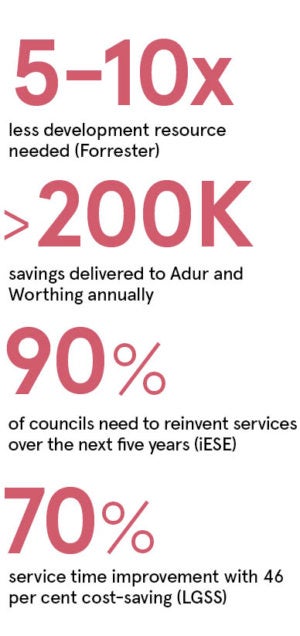
For a few years, public sector organisations have been keen to embark on a journey of digital transformation. It’s clear that new digital technologies and processes need to be adopted to meet citizen demands, offering them flexible and responsive services.
There is a growing understanding that to achieve this, data, services and solutions cannot be siloed, but need to be joined together and easily available to citizens on many channels. However, there are increasing budgetary constraints.
But digital transformation is not just about implementing new technologies, such as chatbots or artificial intelligence, says Dr Andrew Larner, chief executive of public sector transformation partner iESE.
“There is a danger of fossilising your old processes and being trapped with past inefficiencies when you merely move your current model of service delivery online. This may bring marginal cost-saving and efficiency improvements. What is actually needed is not a redesign of old processes, but a re-evaluation of everything organisations are doing and this is why we started working with Netcall,” he says.
Netcall provides organisations with a Low-code platform (MATS). Low-code is a cloud-based digital platform, used by IT and business users to build digital applications rapidly, without coding. It is an alternative to bulky and complicated traditional systems, which for years have dictated how services operate.
Kat Sexton, lead digital architect at LGSS, an organisation supporting shared public sector services, explains that Low-code is an integral part of the way her organisation is able to transform services.
“The goal is to create simple, easy-to-use, end-to-end services to get the job done, first time. Low-code that integrates with multiple systems helps us do this. We simplify, automate and use great tools to get the right process in place,” she says.
“Tech companies have traditionally promised outcomes which are not actually what the customers need. Good user-centred design and Low-code supports digital transformation in that it gives councils the opportunity to design for their users’ specific needs. Solutions are released quickly with early functionality, then using feedback they are iterated until all user needs are met.”

This means LGSS can deliver new services within a matter of months. For example, LGSS used Low-code to create a new bus pass solution for Cambridgeshire, which is already used by more than 100,000 people.
Paul Brewer, director for digital and resource at Adur and Worthing Councils, adds that Low-code isn’t just being used to plug gaps in services and digitise processes, but it is also used to replace core IT systems.
“The benefits of Low-code are you can control what your digital services look like and within that the ability to implement new ideas about how to operate,” he says.
“We now have flexibility of what happens and can do it at pace. Additionally, when you find that something that you’ve built needs to be changed or improved, then the cost of changing is low. So you are not tied to a large investment; you can move along with it.”
The councils were able to avoid buying a housing repairs system by designing and building their own platform. The cost of a new system would have been more than the entire enterprise Netcall platform licence, which is also running several other major apps, so using Low-code is also cost effective.
Another saving is being able to train existing employees with relevant skills to use Low-code, rather than recruiting or paying a premium for specialist developers. “This keeps costs down as it creates more interesting roles, enabling us to flexibly upskill people from other less-needed roles,” adds Mr Brewer.
Digital transformation requires new ways of working, including the development process. Improving or introducing exceptional customer services means organisations must reinvent processes. When you do this, you gain a positive win-win cycle.
Ms Sexton at LGSS concludes: “Making things easier for the customer reduces costs for the councils, then you reinvent the next service.”
Netcall’s Release your Innovation workshop is on September 27, at Camden Council, London NW1 1BD. For the full agenda and to register please visit engage.netcall.com/release


